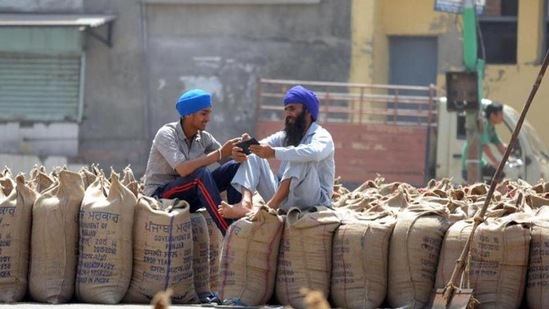Twin issues the economy faces
India must balance preserving food security without letting inflation spiral out of control
The agriculture ministry expects India’s rice production to dip this year on account of deficient rains in some key rice-growing regions. This projection comes on the back of a bad cropping season for wheat which suffered due to a premature heatwave. While there is no reason to panic yet — one must thank Minimum Support Price procurement operations for ensuring there are enough food stocks with the government — there is good reason to avoid complacency on food security and inflation. Two issues must be flagged here.

The fact that the government has so far continued with PM Garib Kalyan Yojana (PMGKY) which has been providing 5kg of extra food grains to 80 million families suggests that food affordability continues to be precarious. One can legitimately argue that the state of mass demand and food security would have been much worse had PMGKY not been in place. With a back-to-back shortfall in wheat and rice output and high international prices driving up domestic prices, the question of whether government stocks will be enough to continue the scheme requires a re-examination. While the State has banned the export of some varieties of rice to pre-empt domestic shortages, it remains to be seen what the response to its rice procurement drive will be. Because India is one of the largest exporters of rice in the world, its decision to partially ban rice exports is likely to generate strong tailwinds for international rice prices. There are reports that the truce which allowed shipping of wheat from Ukraine might also be compromised with rising hostilities in the region. This raises questions about whether the moderation in international food prices will reverse.
The answers to both these questions are in the realm of uncertainties. This is why policymakers must continue to stay vigilant on the inflation front. A sudden shock to food prices could jeopardise the Reserve Bank of India (RBI)’s expectations of inflation coming within its target range of 6% by the March 2022 quarter. Also, it is far-fetched to believe that inflation problems driven by factors such as a fall in crop production can be dealt with by raising interest rates. The monetary policy approach seeks to control inflation by deflating demand. No democracy would like to deflate food demand to curb inflation. This is where the finance minister’s statement that inflation management cannot be RBI’s sole burden becomes important. India must preserve food security and farm incomes without letting inflation spiral out of control.
Continue reading with HT Premium Subscription




